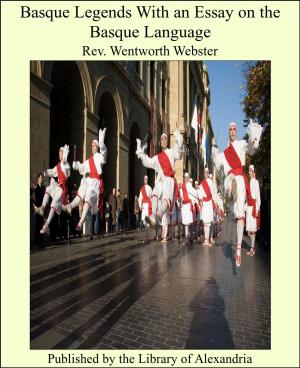| Author: | Flora Annie Webster Steel | ISBN: | 9781465529367 |
| Publisher: | Library of Alexandria | Publication: | March 8, 2015 |
| Imprint: | Language: | English |
| Author: | Flora Annie Webster Steel |
| ISBN: | 9781465529367 |
| Publisher: | Library of Alexandria |
| Publication: | March 8, 2015 |
| Imprint: | |
| Language: | English |
An Indian railway station in the first freshness of an autumn dawn, with a clear decision of light and shade, unknown to northern latitudes, lending a fictitious picturesqueness to the low-arched buildings festooned with purple creepers. There was a crispness in the air which seemed to belie the possibility of a noon of brass; yet the level beams of the sun had already in them a warning of warmth. The up-country mail had just steamed out of the station after depositing a scanty store of passengers on the narrow platform, while the down-country train, duly placarded with the information that it carried the homeward-bound mail, had shunted in from the siding where it had been patiently awaiting the signal of a clear line. The engine meanwhile drank breathlessly at the tank, where, in a masonry tower overhead, a couple of bullocks circled round and round, engaged in raising the water from the well beneath to the reservoir beside them. Round and round sleepily, while the primeval wooden wheel creaked and clacked, and the clumsy rope-ladder with its ring of earthen pots let half their contents fall back into the bowels of the earth; round and round dreamily, with the fresh gurgle of the water in their ears, and the blindness of leathern blinkers in their eyes; round and round, as their forebears had gone for centuries in the cool shade of sylvan wells. What was it to the patient creatures whether they watered a snorting western demon labelled "homeward mail," or the chequered mud-fields where the tender wheat spikelets took advantage of every crack in the dry soil? It was little to them who sowed the seed, or who gave the increase, so long as the goad lay in some one's hands. So much the cattle knew, and in this simple knowledge were not far behind the comprehension of their driver, who, wrapped in his cotton sheet, lay dozing while he drove. The sweetmeat-seller dawdled by, pursued even at dawn by his pest of flies. The water-carriers lounged along uttering their monotonous chant, "Any Hindu drinkers? Any Mussulman drinkers?" while in their van, dusky hands stretched out holding metal cups and bowls, from the very shape of which the religion of the owners might be inferred, owners sitting cheek by jowl in third-class compartments with a gulf unfathomable, impassable, between them in this world and the next. The lank yellow dogs crept among the wheels, licking a precarious meal from the grease-boxes. The grey-headed carrion-crows sat in lines on the wire fencing with beaks wide open in unending yawns. Nothing else appeared to mark the passage of time; indeed the absence of hurry on all sides gave the scene a curious unreality to Western eyes, a feeling which was plainly shown in the expression of a young girl who stood alone beside a small pile of luggage. "A new arrival," remarked a tall man in undress uniform, who was leaning against the door of a first-class compartment, and talking to its occupants
An Indian railway station in the first freshness of an autumn dawn, with a clear decision of light and shade, unknown to northern latitudes, lending a fictitious picturesqueness to the low-arched buildings festooned with purple creepers. There was a crispness in the air which seemed to belie the possibility of a noon of brass; yet the level beams of the sun had already in them a warning of warmth. The up-country mail had just steamed out of the station after depositing a scanty store of passengers on the narrow platform, while the down-country train, duly placarded with the information that it carried the homeward-bound mail, had shunted in from the siding where it had been patiently awaiting the signal of a clear line. The engine meanwhile drank breathlessly at the tank, where, in a masonry tower overhead, a couple of bullocks circled round and round, engaged in raising the water from the well beneath to the reservoir beside them. Round and round sleepily, while the primeval wooden wheel creaked and clacked, and the clumsy rope-ladder with its ring of earthen pots let half their contents fall back into the bowels of the earth; round and round dreamily, with the fresh gurgle of the water in their ears, and the blindness of leathern blinkers in their eyes; round and round, as their forebears had gone for centuries in the cool shade of sylvan wells. What was it to the patient creatures whether they watered a snorting western demon labelled "homeward mail," or the chequered mud-fields where the tender wheat spikelets took advantage of every crack in the dry soil? It was little to them who sowed the seed, or who gave the increase, so long as the goad lay in some one's hands. So much the cattle knew, and in this simple knowledge were not far behind the comprehension of their driver, who, wrapped in his cotton sheet, lay dozing while he drove. The sweetmeat-seller dawdled by, pursued even at dawn by his pest of flies. The water-carriers lounged along uttering their monotonous chant, "Any Hindu drinkers? Any Mussulman drinkers?" while in their van, dusky hands stretched out holding metal cups and bowls, from the very shape of which the religion of the owners might be inferred, owners sitting cheek by jowl in third-class compartments with a gulf unfathomable, impassable, between them in this world and the next. The lank yellow dogs crept among the wheels, licking a precarious meal from the grease-boxes. The grey-headed carrion-crows sat in lines on the wire fencing with beaks wide open in unending yawns. Nothing else appeared to mark the passage of time; indeed the absence of hurry on all sides gave the scene a curious unreality to Western eyes, a feeling which was plainly shown in the expression of a young girl who stood alone beside a small pile of luggage. "A new arrival," remarked a tall man in undress uniform, who was leaning against the door of a first-class compartment, and talking to its occupants















